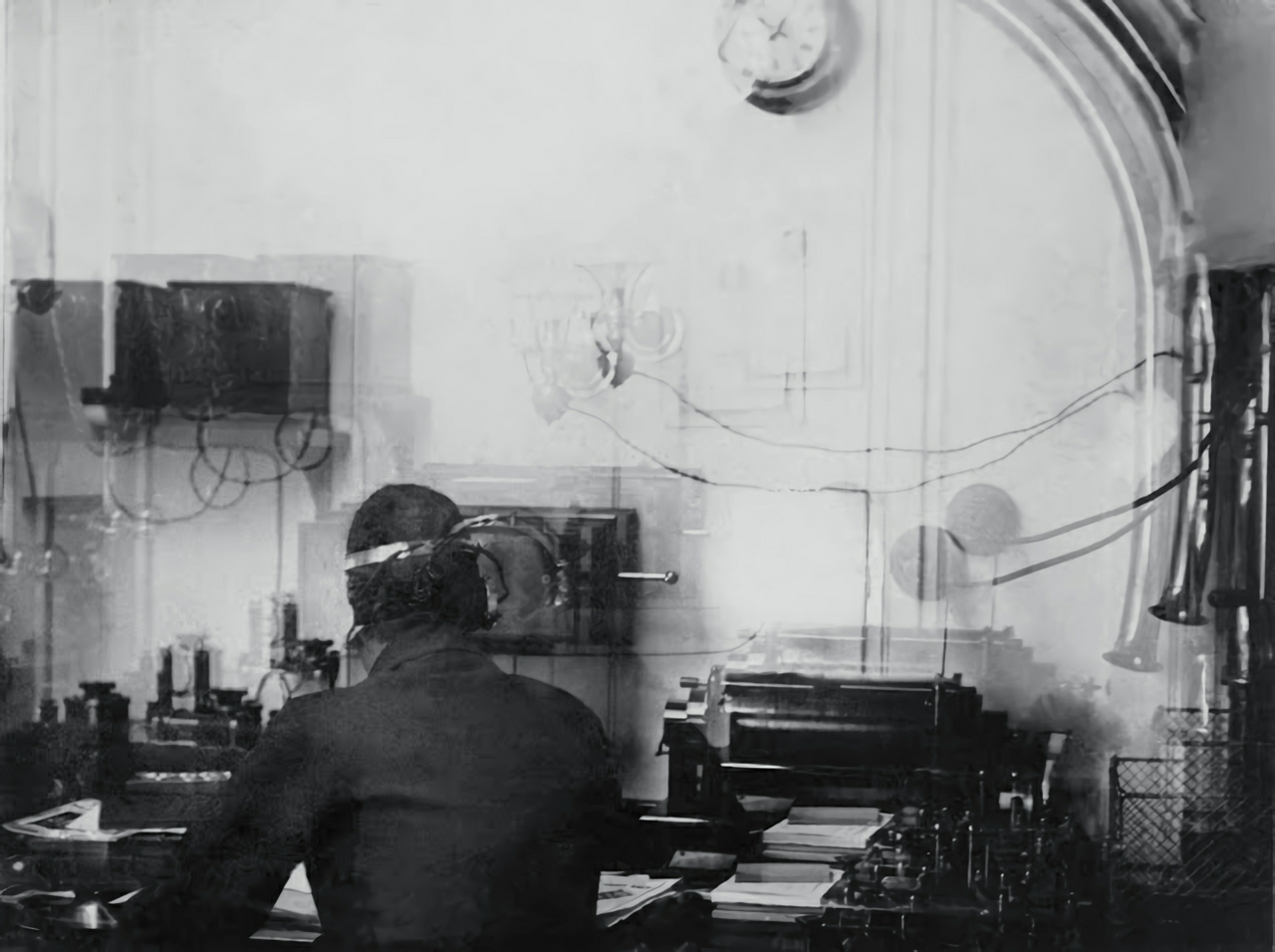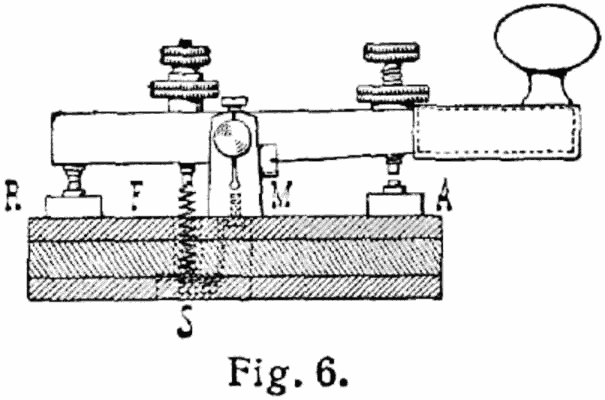|
CQD
CQD (transmitted in Morse code as ) is one of the first distress signals adopted for radio use. On 7 January 1904 the Marconi International Marine Communication Company issued "Circular 57", which specified that, for the company's installations, beginning 1 February 1904 "the call to be given by ships in distress or in any way requiring assistance shall be 'C Q D' ". Background Land telegraphs had adopted the convention of using " CQ" (''""'', from the French word ') to identify alert, or precautionary messages of interest to all stations along a telegraph line. CQ had then been adopted in maritime radiotelegraphy as a "general call" to any ship or land station. In landline use there was no general emergency signal, so the Marconi company added a "D" ("distress") to CQ in order to create a distress call. Sending "D" was already used internationally to indicate an urgent message. Thus, "CQD" was understood by wireless operators to mean ''All station ... [...More Info...] [...Related Items...] OR: [Wikipedia] [Google] [Baidu] |
CQ (call)
CQ is a code used by wireless operators, particularly those communicating in Morse code, (), but also by voice operators, to make a general call (called a ''CQ call''). Transmitting the letters ''CQ'' on a particular radio frequency is an invitation for any operators listening on that frequency to respond. It is still widely used in amateur radio. History and usage The CQ call was originally used by landline telegraphy operators in the United Kingdom. French was, and still is, the official language for international postal services, and the word sécurité was used to mean "safety" or "pay attention". It is still used in this sense in international telecommunications. The letters CQ, when pronounced in French, resemble the first two syllables of ', and were therefore used as shorthand for the word. It sounds also like the French "c'est qui?", which means "who's there?". In English-speaking countries, the origin of the abbreviation was popularly changed to the phrase "seek you" o ... [...More Info...] [...Related Items...] OR: [Wikipedia] [Google] [Baidu] |
Harold Bride
Harold Sydney Bride (11 January 1890 – 29 April 1956) was a British merchant seaman and the junior wireless officer on the ocean liner RMS ''Titanic'' during its ill-fated maiden voyage. After the ''Titanic'' struck an iceberg at 11:40 pm 14 April 1912, Bride and his senior colleague Jack Phillips were responsible for relaying CQD messages (later SOS at Captain Edward Smith's urging) to ships in the vicinity, which led to the survivors being picked up by the RMS ''Carpathia''. The men remained at their posts until the ship's power was almost completely out. Bride was washed off the ship as the boat deck flooded, but managed to scramble onto the upturned lifeboat Collapsible 'B', and was rescued by the ''Carpathia'' later in the morning. Despite being injured, he helped Harold Cottam, the ''Carpathia'''s wireless operator and a personal friend of his, transmit survivor lists and personal messages from the ship. Early history Harold Bride was born in Nunhead, London, Engl ... [...More Info...] [...Related Items...] OR: [Wikipedia] [Google] [Baidu] |
Jack Phillips (wireless Officer)
John George Phillips (11 April 1887 – 15 April 1912) was a British sailor and the senior wireless operator aboard the ''Titanic'' during her ill-fated maiden voyage in April 1912. On the final evening, Phillips had been exceptionally busy clearing a backlog of messages caused by a wireless breakdown. His consequent failure to respond to incoming signals is cited as a principal cause of the disaster. When the steamship ''Mesaba'' sent an ice alert, he acknowledged it, but failed to pass it on to the bridge. Another from the nearby ''SS Californian SS ''Californian'' was a British Leyland Line steamship. It is thought to have been the only ship to see the ''Titanic'', or at least its rockets, during the sinking, but despite being the closest ship in the area, the crew took no action to ...'' was ignored altogether. After they struck the iceberg, however, Phillips did his utmost to contact other ships for assistance. He died in the sinking. Early life Phillips was bo ... [...More Info...] [...Related Items...] OR: [Wikipedia] [Google] [Baidu] |
Prosigns For Morse Code
Procedural signs or prosigns are shorthand signals used in Morse code radio telegraphy procedure, for the purpose of simplifying and standardizing radio communication protocol. They are separate from Morse code abbreviations, which consist mainly of brevity codes that convey messages to other parties with greater speed and accuracy. In general prosigns are just standardised parts of short form radio protocol, and can include any abbreviation. An example would be K for "okay, heard you, continue". In a more limited role the term refers to something akin to that of the nonprinting control characters in teleprinter and computer character sets, such as Baudot or ASCII. Different from abbreviations, those are universally recognizable across language barriers as distinct and well-defined symbols. At the coding level, prosigns admit any form the Morse code can take, unlike abbreviations which have to follow letter form. Many of them are longer than typical characters and are rendered wi ... [...More Info...] [...Related Items...] OR: [Wikipedia] [Google] [Baidu] |
Mayday
Mayday is an emergency procedure word used internationally as a distress signal in voice-procedure radio communications. It is used to signal a life-threatening emergency primarily by aviators and mariners, but in some countries local organizations such as firefighters, police forces, and transportation organizations also use the term. Convention requires the word be repeated three times in a row during the initial emergency declaration ("Mayday mayday mayday") to prevent it being mistaken for some similar-sounding phrase under noisy conditions, and to distinguish an ''actual'' mayday call from a message ''about'' a mayday call. History The "mayday" procedure word was conceived as a distress call in the early 1920s by Frederick Stanley Mockford, officer-in-charge of radio at Croydon Airport, England. He had been asked to think of a word that would indicate distress and would easily be understood by all pilots and ground staff in an emergency. Since much of the air traffic at t ... [...More Info...] [...Related Items...] OR: [Wikipedia] [Google] [Baidu] |
Emergency Communication
An emergency is an urgent, unexpected, and usually dangerous situation that poses an immediate risk to health, life, property, or environment and requires immediate action. Most emergencies require urgent intervention to prevent a worsening of the situation, although in some situations, mitigation may not be possible and agencies may only be able to offer palliative care for the aftermath. While some emergencies are self-evident (such as a natural disaster that threatens many lives), many smaller incidents require that an observer (or affected party) decide whether it qualifies as an emergency. The precise definition of an emergency, the agencies involved and the procedures used, vary by jurisdiction, and this is usually set by the government, whose agencies (emergency services) are responsible for emergency planning and management. Defining an emergency An incident, to be an emergency, conforms to one or more of the following, if it: * Poses an immediate threat to life, hea ... [...More Info...] [...Related Items...] OR: [Wikipedia] [Google] [Baidu] |
Amateur Radio History
The history of amateur radio, dates from the dawn of radio communications, with published instructions for building simple wireless sets appearing at the beginning of the twentieth century. Throughout its history, amateur radio enthusiasts have made significant contributions to science, engineering, industry, and social services. Research by amateur radio operators has founded new industries, built economies, empowered nations, and saved lives in times of emergency. Beginnings Amateur radio came into being after radio waves (proved to exist by Heinrich Rudolf Hertz in 1888) were adapted into a communication system in the 1890s by the Italian inventor Guglielmo Marconi. In the late 19th century there had been amateur ''wired'' telegraphers setting up their own interconnected telegraphic systems. Following Marconi's success many people began experimenting with this new form of "wireless telegraphy". Information on "Hertzian wave" based wireless telegraphy systems (the name "radio" ... [...More Info...] [...Related Items...] OR: [Wikipedia] [Google] [Baidu] |
Marine Press
Marine is an adjective meaning of or pertaining to the sea or ocean. Marine or marines may refer to: Ocean * Maritime (other) * Marine art * Marine biology * Marine debris * Marine habitats * Marine life * Marine pollution Military * Marines, a naval-based infantry force ** United States Marine Corps ** Royal Marines of the UK ** Brazilian Marine Corps ** Spanish Marine Infantry ** Fusiliers marins (France) ** Indonesian Marine Corps ** Republic of China Marine Corps ** Republic of Korea Marine Corps ** Royal Thai Marine Corps *"Marine" also means "navy" in several languages: ** Austro-Hungarian Navy () ** Belgian Navy (, , ) ** Royal Canadian Navy () *** Provincial Marine (1796–1910), a predecessor to the Royal Canadian Navy ** Navy of the Democratic Republic of the Congo () ** Royal Danish Navy () ** Finnish Navy (, ) ** French Navy () ** Gabonese Navy () ** German Navy () ** Royal Moroccan Navy () ** Royal Netherlands Navy () ** Swedish Navy () Places ... [...More Info...] [...Related Items...] OR: [Wikipedia] [Google] [Baidu] |
Global Maritime Distress And Safety System
The Global Maritime Distress and Safety System (GMDSS) is a worldwide system for automated emergency signal communication for ships at sea developed by the United Nations' International Maritime Organization (IMO) as part of the SOLAS Convention. It's a set of safety procedures, types of equipment, and communication protocols used for safety and rescue operations of the distressed ships, boats, and aircraft. It's supplemental to the International Convention on Maritime Search and Rescue (ICMSaR) adopted in 1979 and provides basis for the communication. GMDSS consists of several systems which are intended to perform the following functions: alerting (including position determination of the ship in distress) ships in the vicinity and ashore authorities, search and rescue coordination, locating (homing), maritime safety information broadcasts, general communications, and bridge-to-bridge communications. Specific radio carriage requirements depend upon the ship's area of operatio ... [...More Info...] [...Related Items...] OR: [Wikipedia] [Google] [Baidu] |
2182 KHz
Eighteen or 18 may refer to: * 18 (number), the natural number following 17 and preceding 19 * one of the years 18 BC, AD 18, 1918, 2018 Film, television and entertainment * ''18'' (film), a 1993 Taiwanese experimental film based on the short story ''God's Dice'' * ''Eighteen'' (film), a 2005 Canadian dramatic feature film * 18 (British Board of Film Classification), a film rating in the United Kingdom, also used in Ireland by the Irish Film Classification Office * 18 (''Dragon Ball''), a character in the ''Dragon Ball'' franchise * "Eighteen", a 2006 episode of the animated television series ''12 oz. Mouse'' Music Albums * ''18'' (Moby album), 2002 * ''18'' (Nana Kitade album), 2005 * '' 18...'', 2009 debut album by G.E.M. Songs * "18" (5 Seconds of Summer song), from their 2014 eponymous debut album * "18" (One Direction song), from their 2014 studio album ''Four'' * "18", by Anarbor from their 2013 studio album '' Burnout'' * "I'm Eighteen", by Alice Cooper commonl ... [...More Info...] [...Related Items...] OR: [Wikipedia] [Google] [Baidu] |



